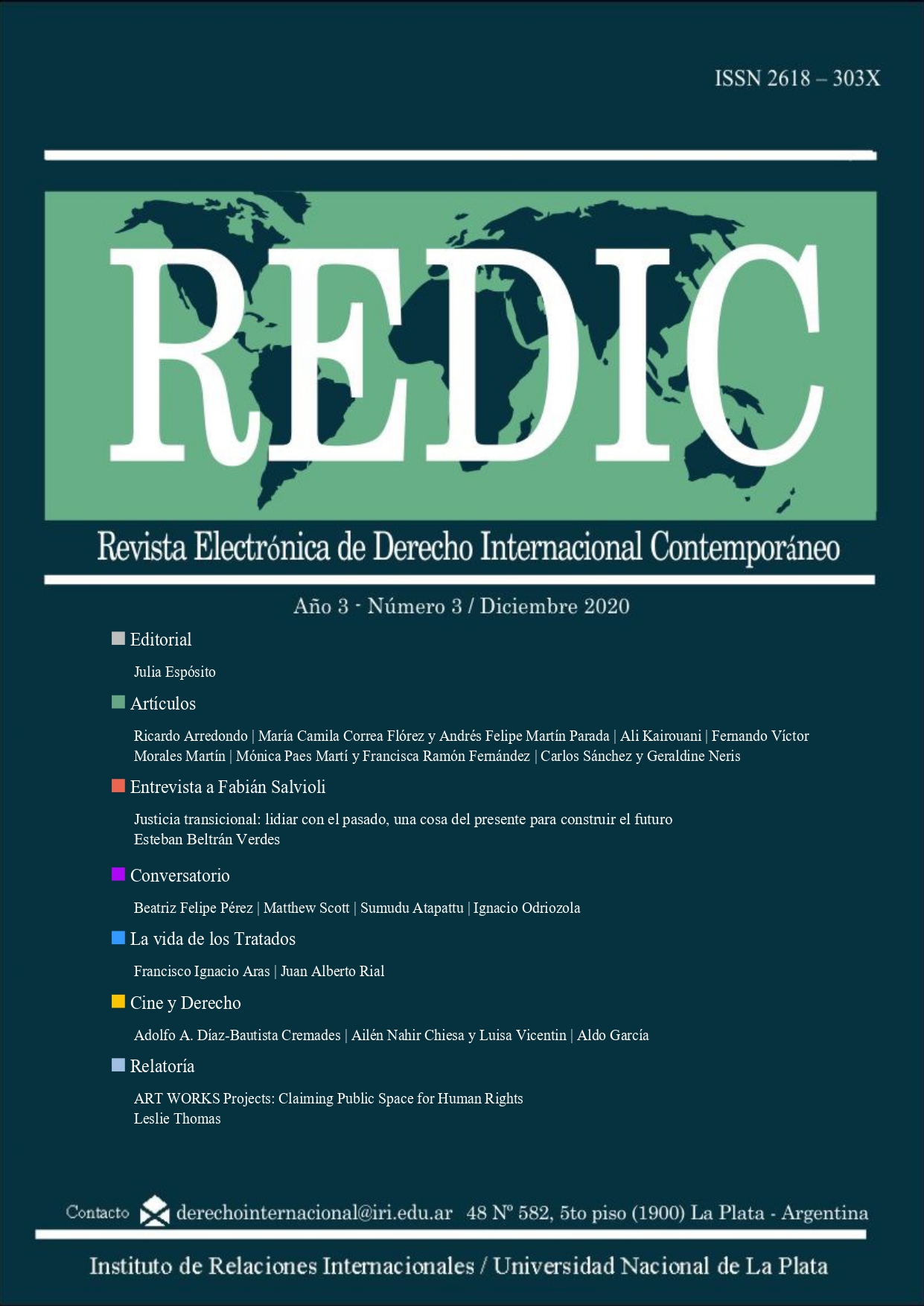A Constitution for Peace: Federalism and Consociationalism in Bosnia and Herzegovina
DOI :
https://doi.org/10.24215/2618303Xe008Mots-clés :
federalism, consociationalism, transitional justice, Bosnia and HerzegovinaRésumé
The present paper draws on the Constitution of Bosnia and Herzegovina, resulted from the Dayton Peace Agreement, in order to explain how the elements of federalism and consociationalism can become important tools in the field of transitional justice. By combining federalism and consociationalism, it will be demonstrated how shared-rule and self-rule can be useful in addressing the demands of territorially concentrated ethnic groups for more autonomy and self-government, while at the same time preserving the territorial integrity of the state. It also explains the role of post-conflict constitutional design processes on their ability to reconcile groups, to address intolerable grievances and to prevent further polarization by providing a common vision of the future of a state.
Téléchargements
Références
Basta, K. (2016). Imagined institutions: the symbolic power of formal rules in Bosnia and Herzegovina. Slavic Review. Vol. 75, Nº 4, 944-969.
Belloni, R. (2007). State Building and International Intervention in Bosnia. Routledge.
Bieber, F. (2006). Post-War Bosnia. Ethnicity, Inequality and Public Sector Governance. Palgrave Macmillan.
Boule, L. (1981). Federation and Consociation – Conceptual Links and Current Constitutional Models. Tydskrif vir Hedendaagse Romeins-Hollandse Reg (Journal for Contemporary Roman-Dutch Law), 44(3), 236-254.
Brandt, M., Cottrell, J., Ghai, Y. and Regan, A. (2011). Constitution-making and Reform: Options for the Process, Interpeace, available at https://www.interpeace.org/resource/constitution-making-and-reform-options-for-the-process-2/
Burg, S. and Shoup, P. (2000). The war in Bosnia-Herzegovina. Ethnic conflict and international intervention. M.E. Sharp.
Choudhry, S. (2014). Classical and Post-Conflict Federalism: Implications for Asia. In Guinsburg. T. and Dixon, R., Comparative Constitutional Law in Asia. (pp. 163-196). Edward Elgar Publishing.
Constitution of Bosnia and Herzegovina (as Amended in 2009), available at: https://www.refworld.org/docid/5b2ba8ab7.html
Elster, J. (1995). Forces and Mechanisms in the Constitution-Making Process, Duke Law Journal, 45(2), 364-396.
Horowitz, D. (1985). Ethnic Groups in Conflict. University of California Press.
Kapidžić, D. (2020). Subnational competitive authoritarianism and power-sharing in Bosnia and Herzegovina. Southeast European and Black Sea Studies. Vol. 20, Nº1, 81-101.
Keil, S. (2012), Federalism as a Tool of Conflict-Resolution: The Case of Bosnia and Herzegovina. L’Europe en Formation, 361(1), 205-218. https://doi.org/10.3917/eufor.362.0205.
Kettley, C. (2001). Power-Sharing and Ethnic Conflict: The Consociational-Integrative Dichotomy and Beyond. European Yearbook of Minority Issues, 1, 247-268.
Kymlicka, W. (2009), Transitional Justice, Federalism and the Accommodation of Minority Nationalism. International Center for Transitional Justice.
Marko, J. (2005), Post-conflict Reconstruction through State- and Nation-building: The Case of Bosnia and Herzegovina. European Diversity and Autonomy Papers - EDAP 4/2005, 10, at www.eurac.edu/edap.
Meskic, Z.; Pivic, N. (2011). Federalism in Bosnia and Herzegovina. Vienna Journal on International Constitutional Law, 5(4), 597-617.
Murray, C. (2018). Constitutions: Frameworks for Pluralism, Global Centre for Pluralism. Available at: https://www.pluralism.ca/constitutions-frameworks-for-pluralism/
Lijphart, A. (1977). Democracy in Plural Societies: A Comparative Exploration. Yale University Press.
Loizides, N., Kovras, I., & Ireton, K. (2011). Introduction: Federalism, reconciliation, and power-sharing in post-conflict societies. Federal Governance, 8(2), 1-14. https://nbn-resolving.org/urn:nbn:de:0168-ssoar-341891
Samuels, K. (2006). Post-Conflict Peace-Building and Constitution-Making, Chicago Journal of International Law, 6(2), 663-682.
Samuels, K. (2006). State-building and Constitutional Design after Conflict, IPA Report.
Sebastián-Aparicio, S. (2014). Post-War Statebuilding and Constitutional Reform. Palgrave Macmillan
Trlin, D. (2017). Limitations of the Democratic Capacity of the Constitutional System of Bosnia and Herzegovina. Beijing Law Review, 8(1), 79-99.
Williams, P., Sommadossi, T. and Mujais, A. (2017). A Legal Perspective on Yemen’s Attempted Transition from a Unitary to a Federal System of Government. Utrecht Journal of International and European Law. 33(84), 4-22. https://doi.org/10.5334/ujiel.366.
Téléchargements
Publié-e
Comment citer
Numéro
Rubrique
Licence
Aquellos autores/as que tengan publicaciones con esta revista, aceptan los términos siguientes:
- Los autores/as conservarán sus derechos de autor y garantizarán a la revista el derecho de primera publicación de su obra, el cuál estará simultáneamente sujeto a la Licencia de reconocimiento de Creative Commons (BY-NC-SA) 4.0 que permite a terceros compartir la obra siempre que se indique su autor y su primera publicación esta revista, no se haga uso comercial, y si se remezcla, se transforma o se crea a partir del material, se debe distribuir bajo la misma licencia del original.
- Los autores/as podrán adoptar otros acuerdos de licencia no exclusiva de distribución de la versión de la obra publicada (p. ej.: depositarla en un archivo telemático institucional o publicarla en un volumen monográfico) siempre que se indique la publicación inicial en esta revista.
- Se permite y recomienda a los autores/as difundir su obra a través de Internet (p. ej.: en archivos telemáticos institucionales o en su página web) antes y durante el proceso de envío, lo cual puede producir intercambios interesantes y aumentar las citas de la obra publicada. (Véase El efecto del acceso abierto).































